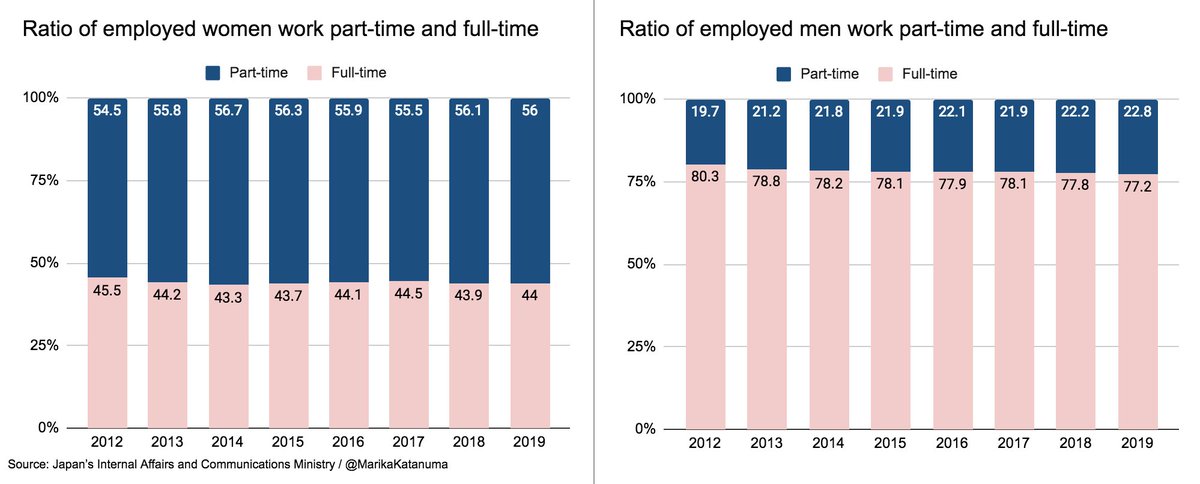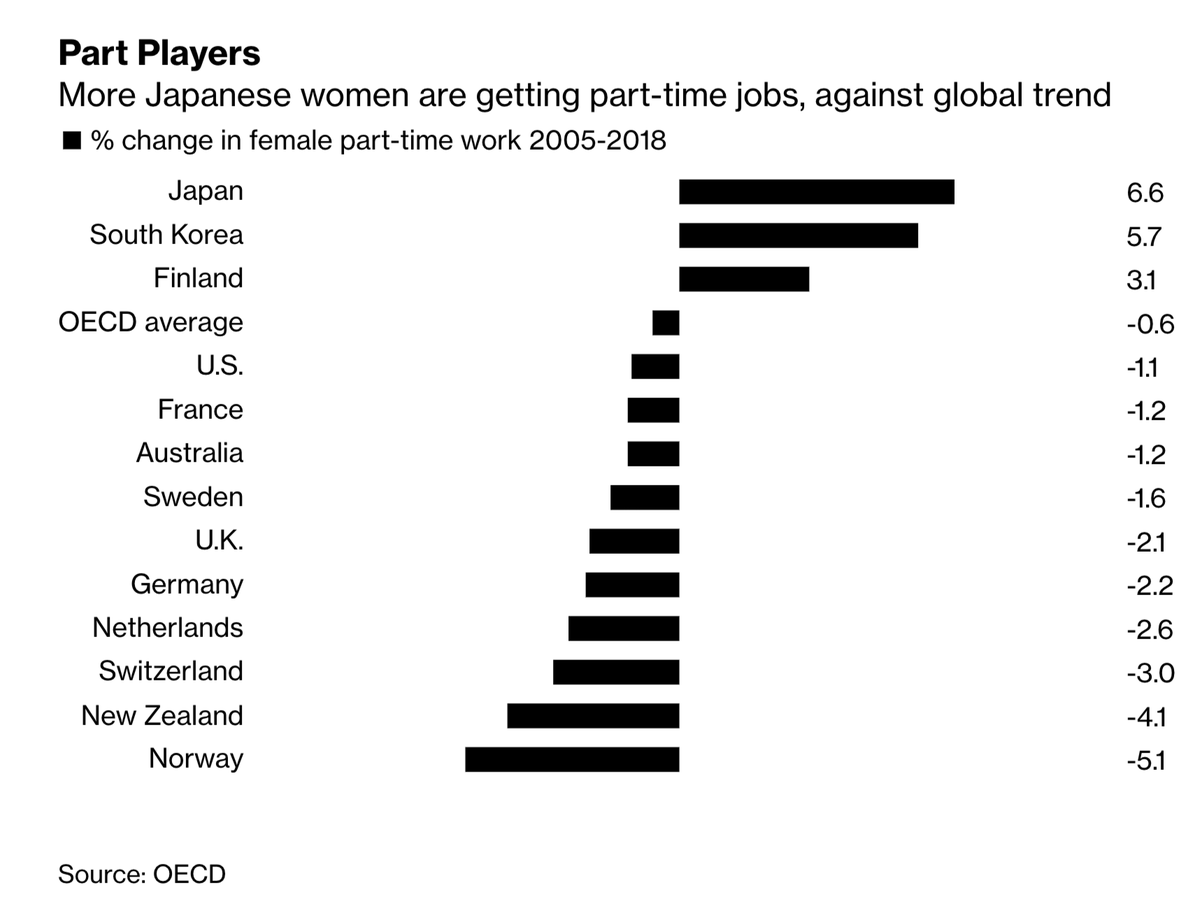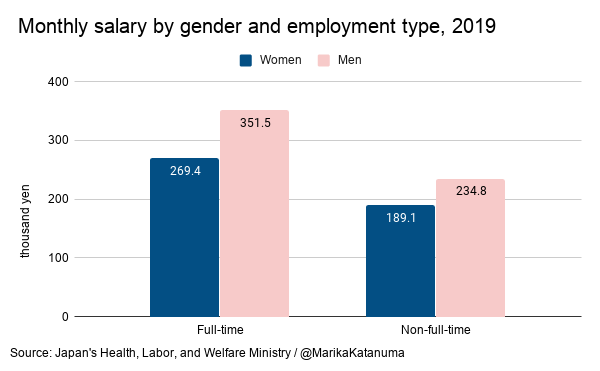Shinzo Abe wanted more women to work, and they did--the female labor force reached a milestone of 30 million; the participation rate surged to 71% topping that of the US and Europe.
So...is he leaving behind a more gender-equal Japan? I want you to assess: a thread
So...is he leaving behind a more gender-equal Japan? I want you to assess: a thread
Abe found the answer to Japan’s shrinking workforce--women who’ve been excluded or held back in the workforce. Declaring “Abenomics is Womenomics, he pushed policies to encourage women to work and have a family at the same time.
bloomberg.com/news/articles/…
bloomberg.com/news/articles/…
Abe’s numerous gender-friendly policies have made strides in opening up the labor market for women. During his nearly 8 years in office, the female labor participation rate went up by more than 10% in all age groups. 
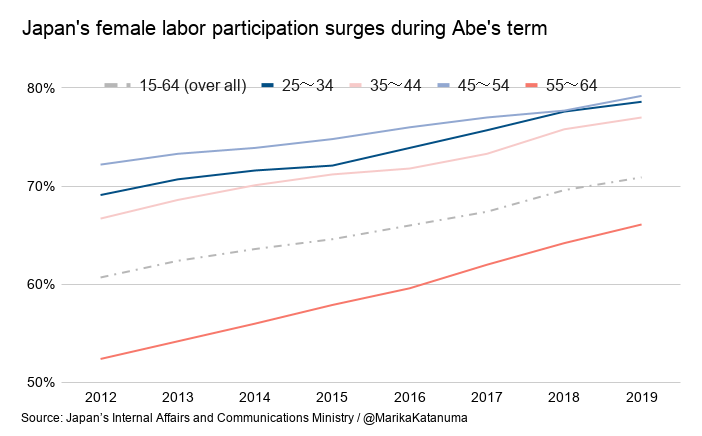
However, many new female workers landed poorly-paid non-regular jobs including part-time, accounting for 66% of the total 3.3 million women who entered the workforce during Abe’s second term. 
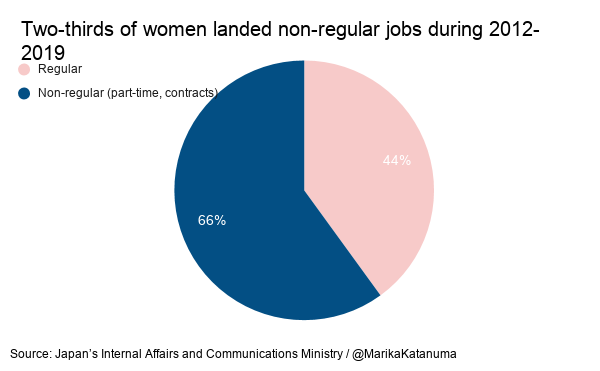
A closer look at the ratio of full-time women : Though the percent of young women finding full-time jobs has barely increased, more older women are now working part-time. 
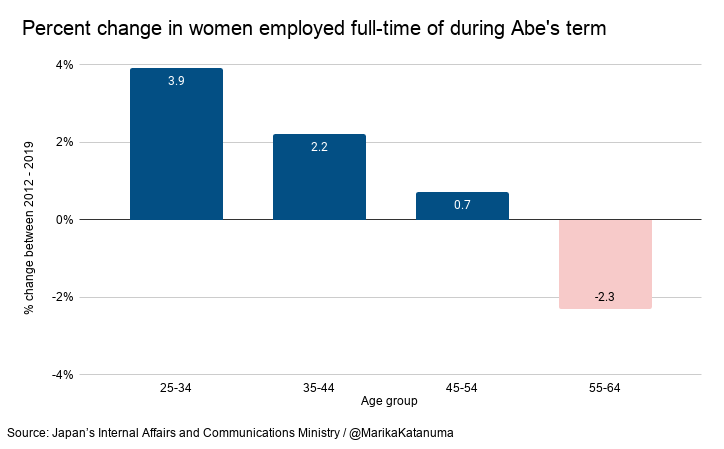
Closer look: 44% of part-time women make less than 1 million yen a year (about $10,000), compared to only 4.1% of full-time employed women. 
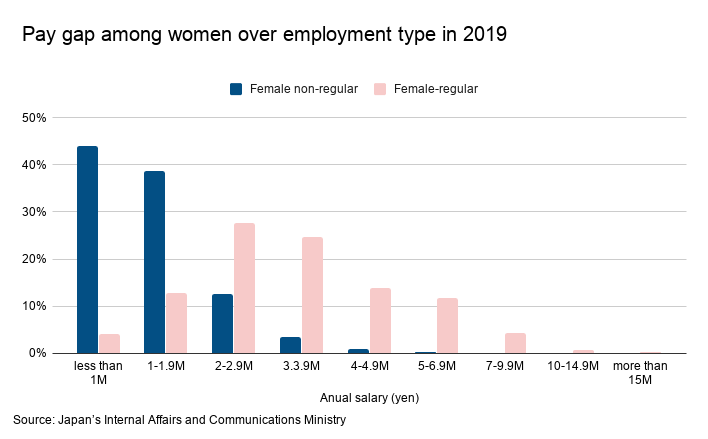
Adding part-time & full-time men in the previous chart. Japan’s gender pay gap is the second widest among OECD nations, surpassed only by South Korea. Japanese women make 74.3% of as much as men, and the gap only narrowed by 3.4 points during Abe’s term. (70.9% in 2012) 
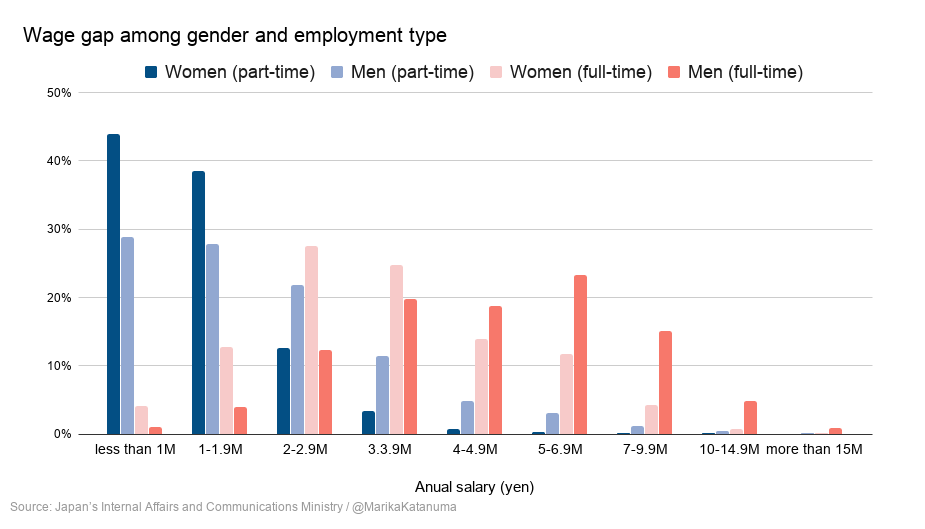
While Japanese men enjoy wage growth throughout their career, hitting the peak earnings at the age of 50 ~ 60, women, regardless of the sector, don’t experience the same growth. (It’s curious to see the spike in the age 65-70 women in IT sector!) 
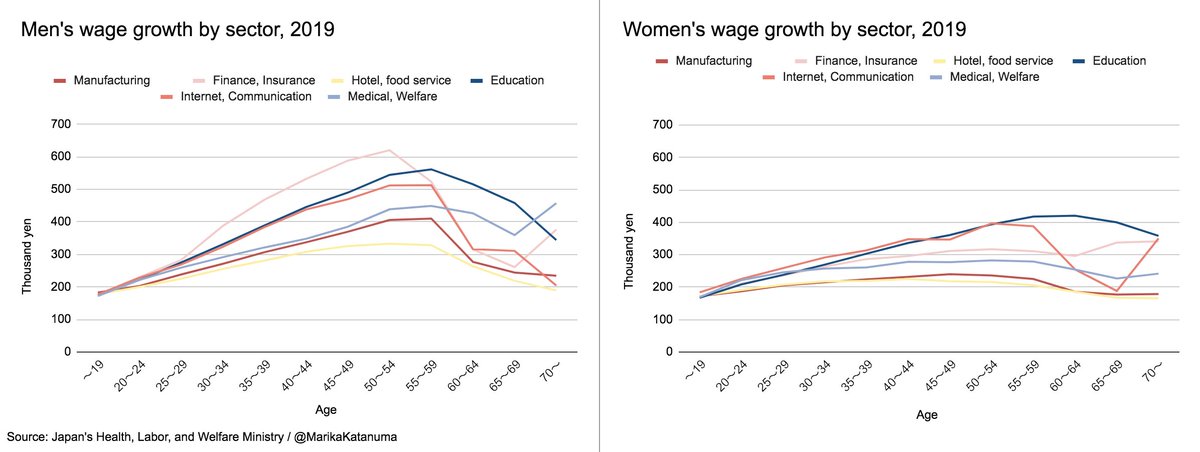
Working part-time also means a lack of benefits, job security and opportunity for advancement, and the pandemic clearly highlighted this fragility.
bloomberg.com/news/articles/…
bloomberg.com/news/articles/…
970000 non-regular workers left the workforce in April, and women accounted for more than 70% of the job losses, marking the first decline in the number of female workers since 2012. 
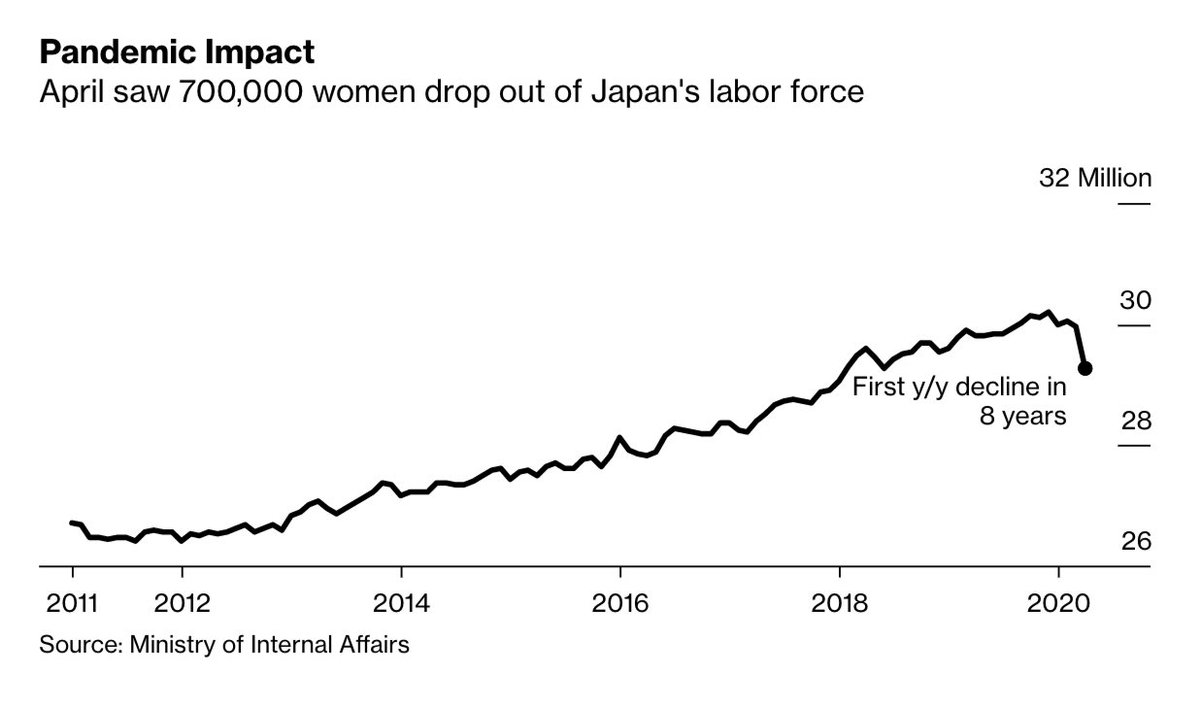
Even more worryingly, due to both gender inequalities and fallout from the pandemic, more women might end up dying by suicide than previous years. In August, women’s suicide jumped 40% from the same month in 2019 -- 23% higher than the average of the previous four years. 
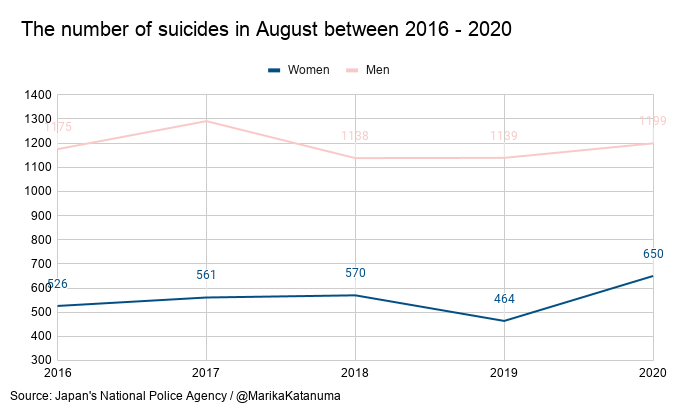
With all the predicaments, why do many Japanese women work dead-end part-time jobs, instead of full-time?
I’ve found some notable reasons and wrote this article last year, but one evident factor is:
bloomberg.com/news/articles/…
I’ve found some notable reasons and wrote this article last year, but one evident factor is:
bloomberg.com/news/articles/…
Japan’s rigidity of labor contracts -- either full-time or part-time and nothing between and long, inflexible work hours: such inflexibility directly harms women more than men because of gender inequality in housework and child care.
Japanese wives spend six times as many hours on childcare and housework than their husbands. The ratio is double what it is in the US. 
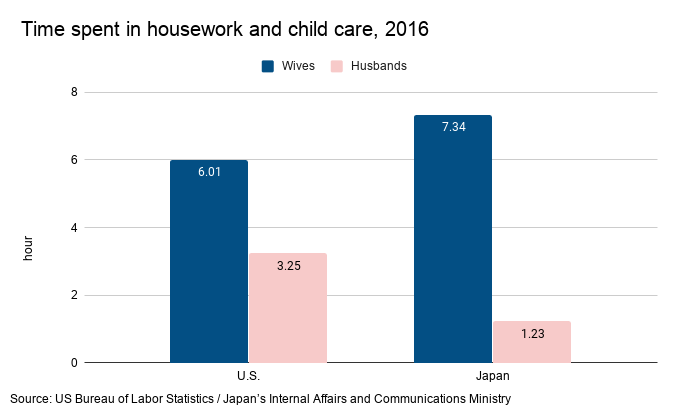
Even on weekends, wives spend more time with their children than husbands. (Where are the husbands???) 
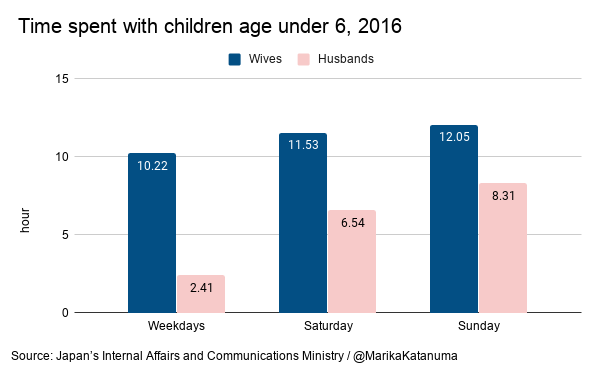
Gains in female labor force participation flattened the 'M' curve, meaning fewer women end their careers to start families. But the ’M’ curve became an 'L' curve; the peak of full-time participation continues to decline after women’s late 20s. 
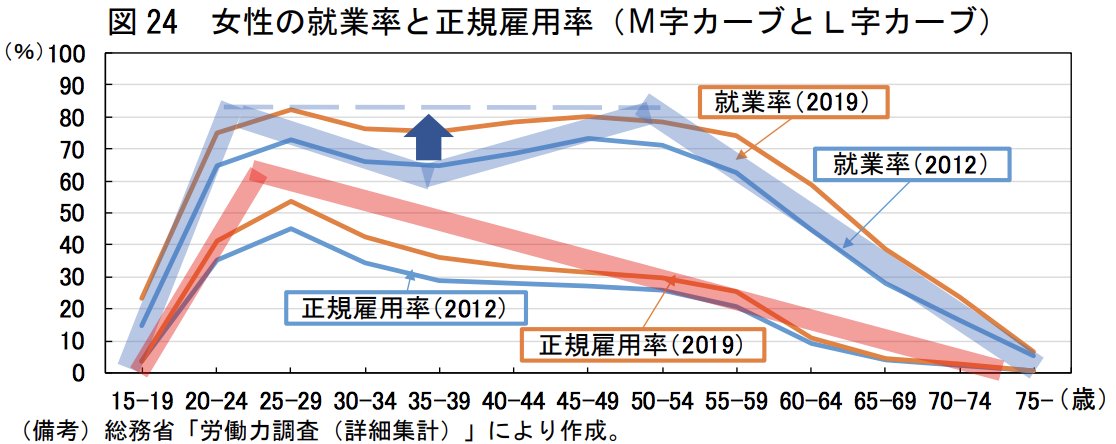
It’s important to realize that eliminating the ‘M’ curve doesn’t necessarily mean women don’t leave their jobs. 44.2% of working mothers left their jobs or off-ramped for a period of time after giving birth, the 2018 data compiled by Recruit shows. 
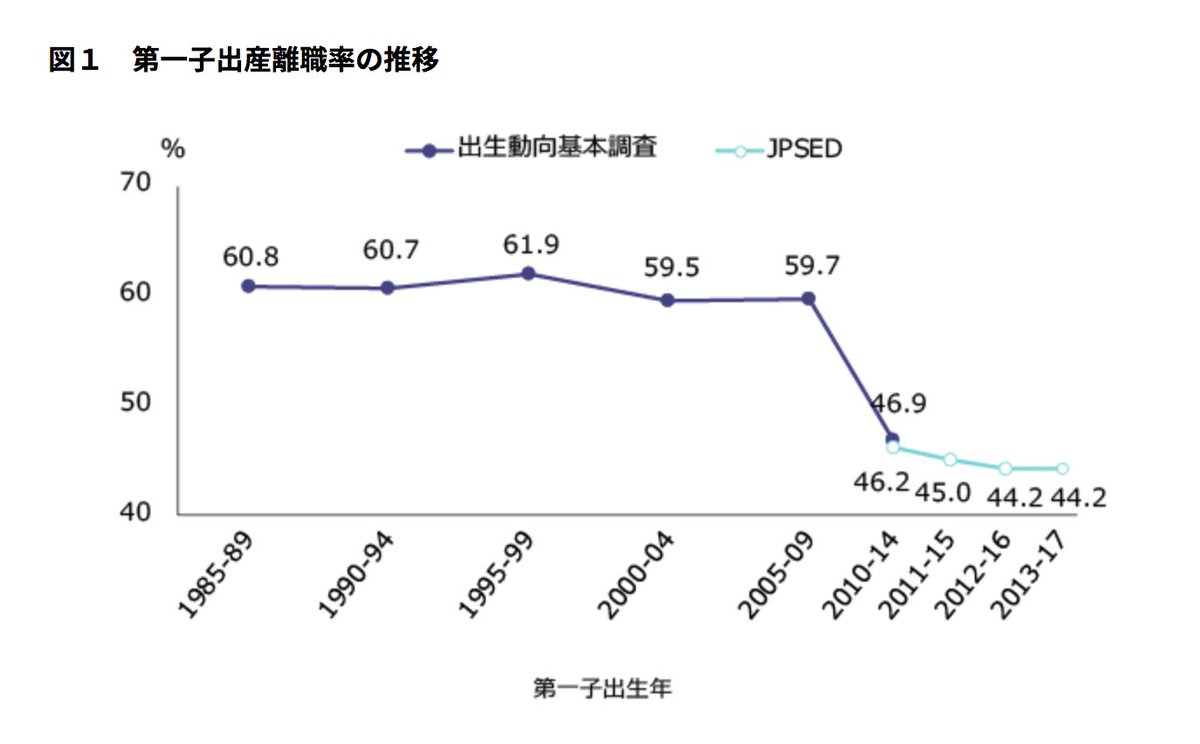
Working mothers in part-time jobs are more likely to exit the workforce, accounting for 64.1% of all working mothers who left jobs between 2013-2017. 
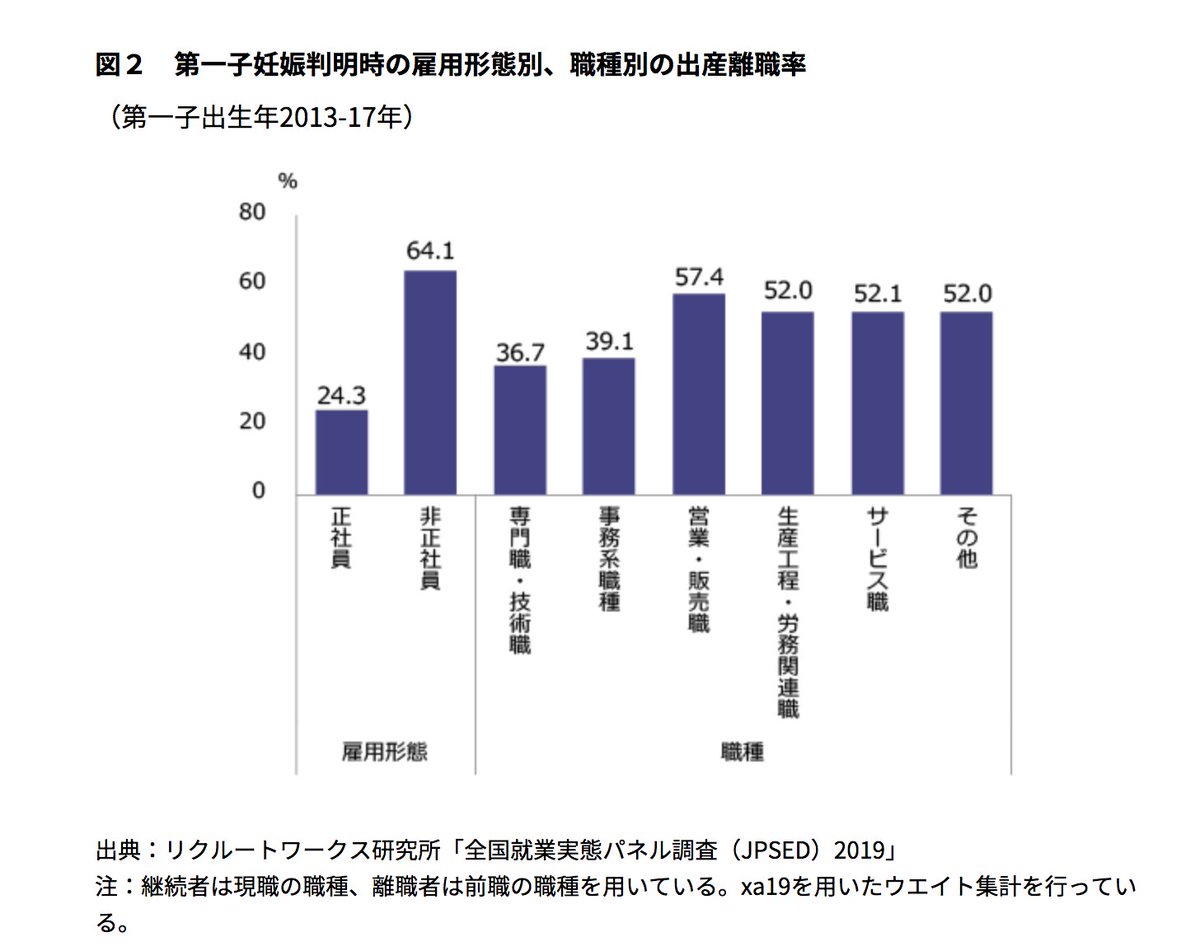
So helping women get full-time career jobs is really the key. Did Abe help advance women’s careers?
He arguably tried -- leaving aside whether it was for the sake of women or the economy. His efforts, however, haven’t borne fruit yet.
He arguably tried -- leaving aside whether it was for the sake of women or the economy. His efforts, however, haven’t borne fruit yet.
Aimed at more flexibility in workstyle, Abe initiated a “limited full-time” option primarily for mothers looking to balance work and family. But many women I interviewed last year found it's not working, as they still face the same workload they would if they were full-time.
Eliminating daycare waitlists was one of the notable reforms. Abe kept his initial pledge, expanding the capacity for additional 400000 children by 2017, but the demand grew much faster. 12439 children are still on the waiting-list as of April 2020, according to MHLW.
Here are other womenomics KPIs evaluated by Goldman Sachs in 2019, noting “while Japan is still far from reaching its targets on female leadership representation, headway has been made in other areas.” More details: goldmansachs.com/insights/pages… 
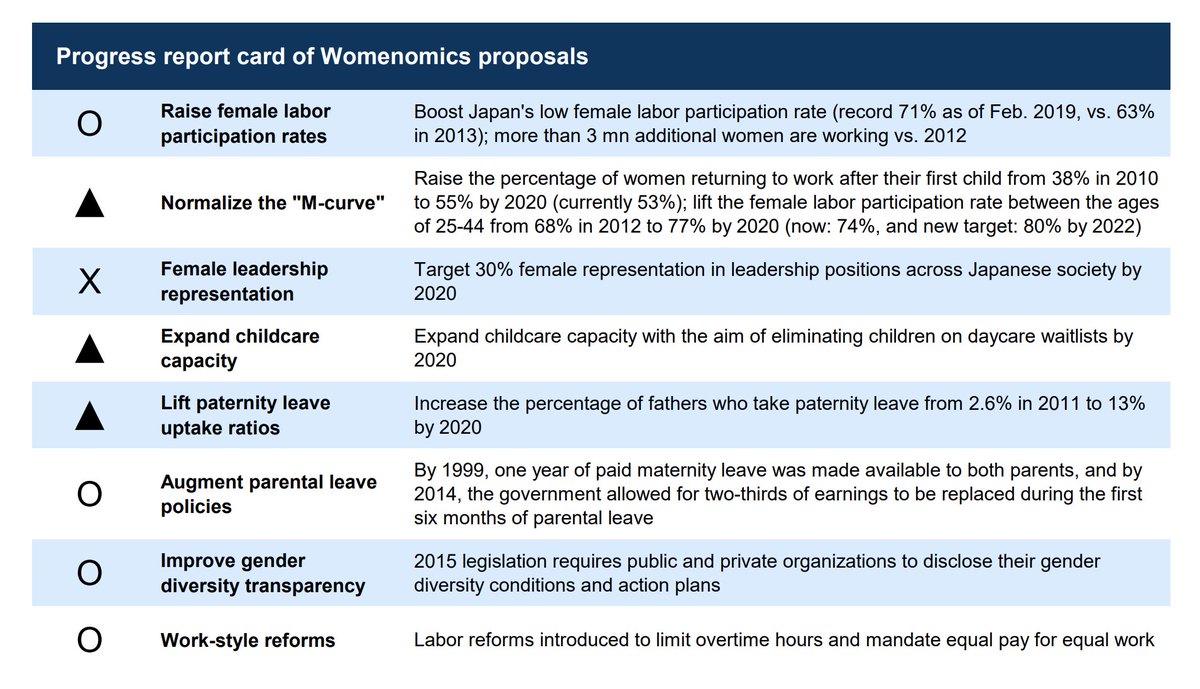
Abe's radical push in gender disclosure among Japanese companies encouraged them to hire women, according to this report by @Noahpinion :
bloomberg.com/opinion/articl…
bloomberg.com/opinion/articl…
One regrettable decision Abe made was failing to tackle tax and social disincentives. As explained in the tweet below, those social systems have historically ‘nudged’ women into low-paid part-time jobs.
https://twitter.com/MarikaKatanuma/status/1216148571977744386?s=20
So, how much did Abe improve gender equality in Japan?
Source links
OECD stats:
oecd.org/els/soc/LMF_1_…
Japan Labor
stat.go.jp/data/roudou/2.…
Japan Wage:
mhlw.go.jp/toukei/itiran/…
Time spent at home:
stat.go.jp/data/shakai/20…
Japan Suicide:
npa.go.jp/publications/s…
'L' curve:
www5.cao.go.jp/keizai2/keizai…
Recruit data:
works-i.com/column/teiten/…
OECD stats:
oecd.org/els/soc/LMF_1_…
Japan Labor
stat.go.jp/data/roudou/2.…
Japan Wage:
mhlw.go.jp/toukei/itiran/…
Time spent at home:
stat.go.jp/data/shakai/20…
Japan Suicide:
npa.go.jp/publications/s…
'L' curve:
www5.cao.go.jp/keizai2/keizai…
Recruit data:
works-i.com/column/teiten/…
DMやコメント等で様々なご質問をいただきありがとうございます。以前、同じテーマでこちらの記事を書きました。ツイートでは、問題の背景などに触れることができなかったので、お時間がありましたらぜひ....!
https://twitter.com/MarikaKatanuma/status/1216198972794003456?s=20
• • •
Missing some Tweet in this thread? You can try to
force a refresh

